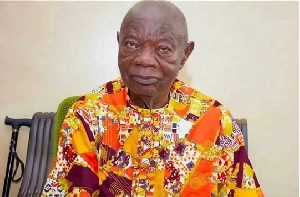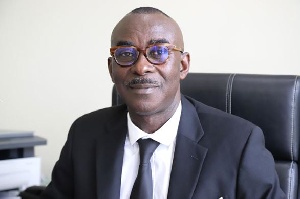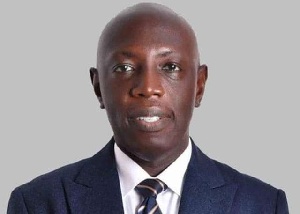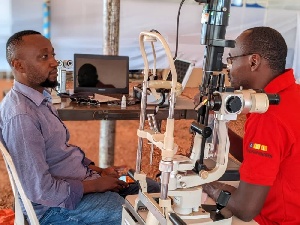- Home - News
- Elections 2024
- News Archive
- Crime & Punishment
- Politics
- Regional
- Editorial
- Health
- Ghanaians Abroad
- Tabloid
- Africa
- Religion
- Photo Archives
- Press Release
General News of Friday, 23 May 2025
Source: www.ghanawebbers.com
It’s not mining company’s job to build skyscrapers' - Chamber boss on community development
The Acting Chief Executive of the Ghana Chamber of Mines, Ahmed Nantogmah, addressed criticism about mining companies. Many believe these companies neglect their host communities.
During an interview on JoyNews’ PM Express Business Edition, he said, “It’s not the mining company’s job to build skyscrapers.” His remarks come as scrutiny grows over mining's impact on local infrastructure, education, and health.
Nantogmah argued that the real issue lies in how mineral royalties are used. He stated that state institutions and local authorities often misuse these funds.
“There’s a broad argument that development is in the hands of the state,” he noted. “That’s true. But mining companies do a lot in their communities.”
He pointed out that many schools and hospitals are run by mining companies. However, he emphasized that these companies cannot do everything alone.
Once royalties are paid, it is up to local assemblies and traditional authorities to use them effectively. “When the royalties are paid, they should return some to host communities for development,” he explained.
He raised a critical question: “Are they being used for that development?” To illustrate his point, he gave an example about road construction.
“If there’s a one-kilometre road in town and there’s an assembly getting mineral royalties,” he asked, “why would they ask Gold Fields to develop it?”
“Gold Fields constructed over 33 kilometres of road for the community,” he added. “Everybody is using it.”
Nantogmah called for systemic reform regarding royalty usage. He suggested creating laws to regulate how mineral royalties are spent.
“We have one for petroleum revenue management,” he said. “Why can’t we do something similar for mining?”
He proposed legislation defining specific uses for royalties. For instance, if funds can only be used for health or education, they won’t be misused for salaries or other expenses.
“Otherwise, it goes to the community without transparency,” he warned.
He expressed concerns about royalty usage in places like Obuasi. “A lot of royalties should come back from there,” he said. “But do they? And what are they used for?”
Nantogmah stressed shared responsibility between mining companies and development authorities. He criticized poor urban planning in mining areas and unrealistic expectations placed on companies.
“If towns aren’t properly planned,” he stated, “it’s not up to mining companies to fix everything.” He noted that most mineral revenue does not stay in local towns but goes to Accra instead.
A recent study showed 80% of mineral benefits are spent in Accra. "That’s where they use it to develop all of Ghana," he remarked.
He cautioned against blaming only mining companies for underdevelopment in host towns. Local authorities must also be held accountable for how revenues are managed.
“If you bring a mining company into a community," he explained, "you might have some benefits." However, questions remain about how those benefits are utilized at both state and local levels.
Once these questions are answered, better policy discussions can begin. "Then we can consider if revenue should increase or be tied to specific projects," Nantogmah concluded.
Entertainment










